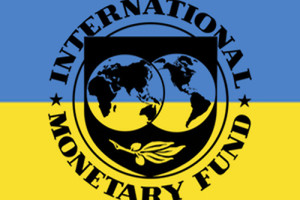Ukraine not out of the woods yet

(Business New Europe – bne.eu – KYIV BLOG: Ben Aris in Moscow – August 28, 2015)
The $3.6bn debt deal announced on August 27 by Ukraine’s Ministry of Finance, where private bondholders agreed to take a 20% writedown on the face value of $18bn in government debt, is very good news. Yet it’s not a done deal and the final sum that will be restructured will almost certainly be less than the headline figure.
As bne reported, this is only a preliminary deal, which still has to be approved by the holders of the bonds – a process that will last well into October.
What was actually agreed was that in principle some of the bondholders – those that were members of the ad hoc credit committee, especially Franklin Templeton, which holds some $8bn – would agree to this 20% haircut.
But as Ukrainian Finance Minister Natalie Jaresko said, this committee only holds a supermajority share in “some” of the bonds where it can force a deal on the other investors. That means the rest of the bondholders also need to sign off on the deal on “most” of the bonds, an outcome that remains uncertain. The bondholder approval process for the deal will actually only start in the middle of September and then the investors have 21 days to make up their minds.
The head of the International Monetary Fund (IMF), Christine Lagarde, highlighted the fact that a lot of work has still to be done in a statement she released on August 27. “Full implementation of the agreements will provide the targeted external debt service relief, reduce annual post-program gross financial needs as envisaged, and place public debt on a clearly downward path. It is therefore important that the agreement gains broad support by all concerned Eurobond holders,” Lagarde said.
In other words, their agreement is not a given, and if the agreement does not get the broad support of all concerned Eurobond holders, the deal will fail to meet the IMF’s requirements needed to release more funds for the rescue package.
Still, the prospects for a significant deal remain pretty good. And even if the actual amount of bonds falls short of the IMF’s targets, the Fund will probably still keep sending Kyiv money for political reasons. Franklin Templeton owns a significant proportion of the debt and has made it clear it would accept a haircut, while many of the bondholders will probably go along with it. However, Russia, which holds another $3bn of Ukraine’s debt due for redemption in December, has made it equally clear it is not prepared to parlay. That means trouble at the end of the year.
Intractable
Ukraine’s finance ministry has made it clear that it continues to regards Russia’s $3bn Eurobond as commercial debt, ie borrowed by the state from private creditors, whereas the Russians insist that it is sovereign debt. The distinction is crucial.
If Russia is not included in this deal and refuses to accept it, then in December the Ukrainian government has to decide whether to pay down the Russian debt in full or default. If it is ruled that Russia’s debt is indeed sovereign debt, then the IMF support programme will be suspended because under the Fund’s own rules it cannot lend to a country that has defaulted on sovereign debt. A default could also play havoc with the other bonds.
What this week’s deal has done is partially solve some of the debt problem, but Ukraine is still a long way from financial stability. Its international hard-currency reserves increased to just over $12bn, and if Ukraine decides to repay the Russian debt, then it could end this year with as little as $9bn – way below the three months’ import-cover generally considered by economists to be the minimum necessary to ensure the stability of the national currency.
Executive managing director of the Washington-based Institute of International Finance (IIF), Hung Tran, said on August 27 that he was convinced Ukraine would refuse to pay the $3bn Eurobond and that, “full private sector bondholders agreeing to the deal, it is important that documentation for the extended slashed restructured bonds contains well drafted pari passu and cross-default clauses excluding any references to possible Russia triggered credit events”.
A taste of what would follow from a more formal default on the Russian debt came almost immediately after the deal was announced: Fitch ratings agency lowered Ukraine’s long-term foreign currency issuer default rating from ‘C’ to ‘CC’.
“This [deal] represents a Distressed Debt Exchange (DDE) that results in material losses to bondholders and is being conducted in order to avoid default,” the rating agency said in a statement announcing the downgrade. And more ominously, Fitch said that it “does not envisage developments that would result in a positive rating action at this time.”
A full-on default of Russia’s $3bn Eurobond would only make matters worse.
